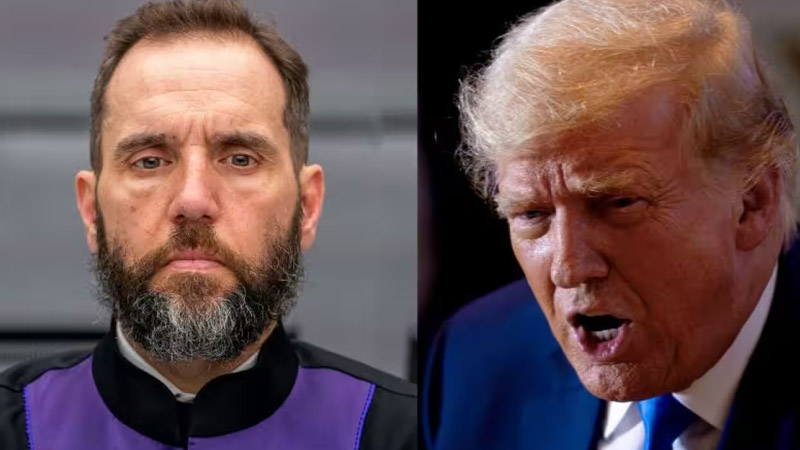Senate Should Reject Trump’s Pick of Tulsi Gabbard as DNI, Warns Anti-Trump Conservative Tom Nichols

Michaal Nigro/Sipa/AP
In a sharply critical article for The Atlantic, anti-Trump conservative and former Naval War College professor Tom Nichols called on the Senate to reject President-elect Donald Trump’s nomination of former Hawaii Rep. Tulsi Gabbard as Director of National Intelligence (DNI). Nichols argued that Gabbard, a former Democrat who recently began supporting Trump, is unqualified for the role and holds views that could undermine the integrity of the intelligence community.
“Gabbard is stunningly unqualified for almost any Cabinet post… but especially for ODNI,” Nichols wrote, pointing to her lack of intelligence experience. “She has no qualifications as an intelligence professional—literally none,” he explained, noting that Gabbard’s military experience as a reserve lieutenant colonel in the Hawaii Army National Guard involved roles in medical, police, and civil affairs support rather than intelligence.
“She has no significant experience directing or managing much of anything,” he added. Nichols also criticized Gabbard’s foreign policy stance, describing her as disdainful of the intelligence community’s work and America’s global role. “Gabbard ran for president as a Democrat in 2020, attempting to position herself as something like a peace candidate. But she’s no peacemaker: She’s been an apologist for both the Syrian dictator Bashar al-Assad and Russia’s Vladimir Putin,” Nichols argued.

He characterized her worldview as sympathetic to authoritarian leaders, portraying America as the aggressor and dictators as misunderstood figures. In addition to her controversial stance on Syria, Nichols pointed out that Gabbard has embraced Russian propaganda on the Ukraine war, often attributing Russia’s invasion to alleged NATO aggression.
Such views, Nichols warned, could severely impact her ability to collaborate with NATO intelligence partners, whom she would need to work with as DNI. Nichols expressed particular concern that Gabbard’s views and lack of qualifications make her an “insider threat”—a term used in security clearance training to identify individuals who may pose risks from within.
“Presidents should be given deference in staffing their Cabinet,” Nichols conceded. “But this nomination should be one of the handful of Trump appointments where soon-to-be Majority Leader John Thune and his Republican colleagues draw a hard line and say no—at least if they still care at all about exercising the Senate’s constitutional duty of advice and consent.” Nichols’s argument underscores a broader debate over Trump’s recent cabinet nominations, as Senate Republicans face increasing pressure to scrutinize appointments seen as potentially harmful to national security.


